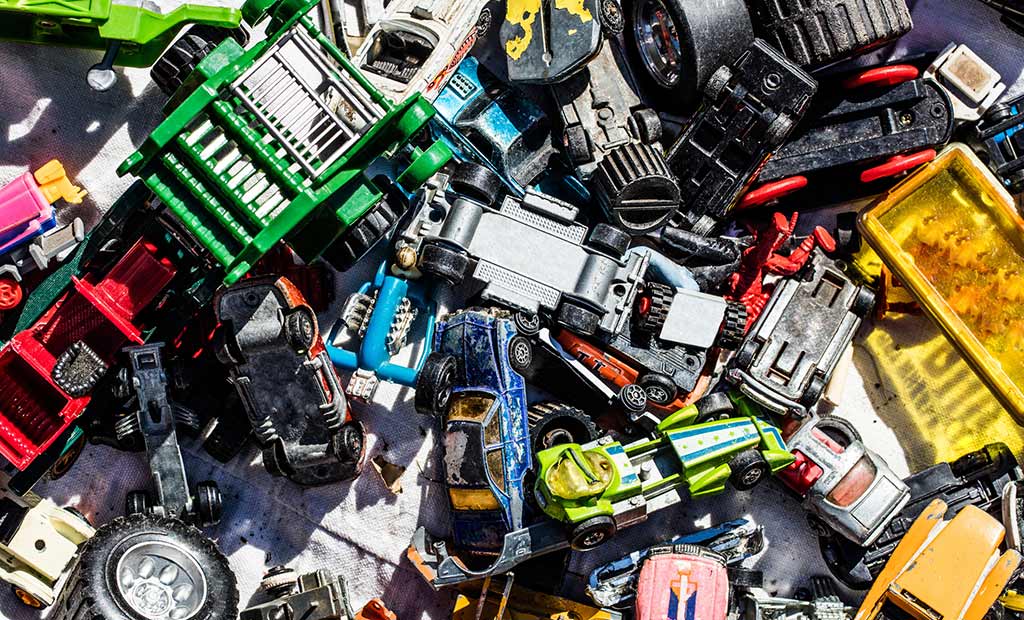Second-hand sales are a popular way for PTAs to raise funds, but are you aware of the legislation that might apply? Sylvia Rook, lead officer at the Chartered Trading Standards Institute, tells us how PTAs can ensure everything’s done correctly.
What legislation would apply to PTAs selling second-hand goods, for example at a car boot sale?
The legislation that applies to car boot sales generally applies to the sellers, not to the organisers, although you do have a degree of responsibility to ensure that sellers at your event do not commit any offences. Most of the Trading Standards legislation applies to traders selling goods, as opposed to members of the public (such as school families) who are simply having a clear-out, so you will need to decide whether to allow traders to attend, or whether to restrict the sale to members of the public selling their own belongings.
What is a ‘trader’ and what does it mean for us as a PTA if they attend our sale?
Generally speaking, it can be considered to be ‘a person acting for purposes relating to that person’s trade, business, craft or profession, whether personally or through another person acting in the trader’s name or on the trader’s behalf’. When deciding whether someone is a trader, consider: Are the goods the person is selling their own personal property? If they buy goods specifically to resell, or make goods to sell, they are likely to be a trader. Do they regularly sell at car boot sales? If so, they are likely to be considered a trader, even if this is not their main income. Do they employ someone to help them sell the goods, or do they sell similar goods at other venues (for example, markets or on auction sites) and is the income received from selling in this way a significant proportion of their income? If so, they are likely to be a trader.
Are sellers obliged to behave in a certain way?
The Consumer Protection from Unfair Trading Regulations 2008 state that traders should not give false or misleading information, or omit information, and should not act ‘aggressively’ if any of these practices would cause the consumer to do something different. Signs such as ‘Sold as seen’ or ‘No refunds’ are not permitted. While the majority of Trading Standards legislation applies to traders, best practice is for all sellers to follow the guidelines to ensure that all goods are correctly described and, more importantly, safe.
Our tabletop sales are really popular, so we’d like to draw up some T&Cs for stallholders. What should we include?
There is no specific information that you are required to ask for, but we would suggest you ask sellers to provide their contact details in case there’s a problem. Other things to include in your terms might be:
- Time of arrival and departure, and what sellers are expected to do with their rubbish
- The fact that any seller agrees to comply with all consumer protection legislation
- Stolen goods may not be sold
- Cigarettes, tobacco products, alcohol and flammable liquids may not be sold
- No live animals may be sold
- No counterfeit items may be sold
- No weapons, ball-bearing guns or any realistic imitation firearms may be sold.
You may wish to restrict the sale of electrical items to prevent fire and injury. Consider whether you are happy for food items to be sold. If you are, make it clear that items must be within their use by/best-before date (if packaged), labelled appropriately (particularly concerning allergens), and must be stored appropriately. For further information, visit the Food Standards Agency website.
The Consumer Protection Act 1987 and the General Product Safety Regulations 2005 require all goods sold, including second-hand goods, to be safe. In particular, there are specific safety requirements for new items such as toys, cosmetics and electrical goods. You may wish to restrict the sale of electrical items to prevent fire and injury. Electrical goods don’t have to have been PAT tested, but they should be safe.
What should we do if we suspect a seller of selling counterfeit goods?
Under the Trade Marks Act 1994, it is an offence to sell counterfeit goods, for example DVDs, CDs, T-shirts, bags and perfumes. If you suspect someone of selling fake products, you should ask them to leave, and provide your local Trading Standards office with their name and address.
What should we do if a customer is unhappy with a purchase, eg a CD they bought is scratched?
The customer’s rights are against the person from whom they bought the CD, not against you as the organiser. Under the Consumer Rights Act 2015, any goods sold by a trader must be of satisfactory quality, fit for purpose and as described and, if they are not, the customer has the right to their money back (or a repair or replacement). However, when buying second-hand, there is always a risk that items may be damaged, and there is a degree of ‘caveat emptor’ (buyer beware). These rights under the Consumer Rights Act 2015 don’t apply if the person selling the item was not a trader; in these circumstances, the goods must be ‘as described’, but there is no requirement that they should be of satisfactory quality. Buyers always need to be careful when buying second-hand, particularly when purchasing at a car-boot sale. It is worth noting that there is no obligation for the seller to give a receipt, so it is up to the consumer to ask the trader for their contact details at the time of sale.
What age restrictions do we need to be aware of on the goods we sell?
It is an offence for a trader to sell an age-restricted product to an under-aged purchaser; this includes DVDs, computer games, spray paint, party poppers and lighter refills. If any traders are selling age-restricted goods, it is worth reminding them of the restrictions, perhaps in your terms and conditions.
For more information
Advice for traders on the laws relating to the sale of goods can be found at Business Companion, along with a helpful guide to car boot sales. Alternatively, contact your local Trading Standards Office for advice and guidance.
The above is intended as guidance only. We recommend that you contact the relevant organisations with specific reference to insurance, legal, health and safety and child protection requirements. Community Inspired Ltd cannot be held responsible for any decisions or actions taken by a PTA, based on the guidance provided.








